Trash, Cash, and an Indie Chart Rash | ||
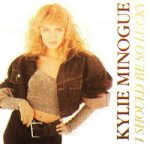
|

|

|
To the chagrin of many a Chemical Underground fan, the Indie Charts have always tended to contain many perfectly non-indie-sounding records that just happen to have an independent distributor. Glance at a recent chart, and next to your Seafoods and Brassys there's the Backstreet Boys. But ten years ago the House of Loves of this world were actually outnumbered in the Indie Charts by the likes of Jason Donovan, Kylie Minogue, Hazel Dean, Sinitta, Sonia and Rick Astley. And yet, such records have more in common with the spirit of cheap British DIY indiepop than the entire back catalogues of Bis or Hefner. These were records with a definite, unique and immediately recognizable sound; nurtured, ruthlessly controlled and hermetically sealed within its own world. Stock Aitken Waterman. Names synonymous with late 80s chart pop. Thatcherite, disposable fodder for bored white trash teenagers in Bromley shopping centres. It was music bought by little girls with bad perms and worse denims. And it's music that I love with an irony-free passion. Their 1990 compilation 'A Ton of Hits - The Hit Factory Vol 4' is rarely ejected from my Walkman. And yes, I do own the cassette version. It's joyous, uplifting, perfect bubblegum pop. It's parochial and cheap, it's pure 80s, it's pure Chip Shop Britain. It's fabulous stuff. | ||
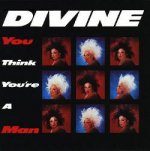
|
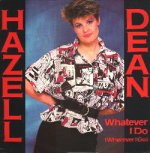
|

|
There was Pete Waterman, the ideas man, lyricist, general wheeler-dealer and tv presenter on 'The Hitman And Her' arguably the trashiest TV show of its time, as well as a precursor to the world of 'Ibiza Uncovered'. Getting on with things in the studio were Mick Stock and Matt Aitken, writing, producing and playing the actual music. Waterman had a history as a Northern Soul DJ, following its development in US clubs into disco and then Hi-NRG, and had a vision of a British equivalent of Motown, producing 'uplifting, working-class dance music… female factory worker-type music' in a production line style. The Motown in-house writers and producers, Holland Dozier Holland, were his role models. He even nicknamed SAW's own label, PWL, as 'The Sound of A Bright Young Britain'. Waterman boasted he had 'Woolworth's ears', a knack for spotting trends in clubs and recycling them as catchy, mass-market pop. He took what was then the most modern sound of New York gay clubs - pumping sequencer basslines and relentless Linn drum machines (amusingly credited on all SAW records as 'Drums by A. Linn'), and married it with the world of Smash Hits and the perennial teenage hunger for colourful, glamorous poster stars. And by golly, did they have some hits. Starting off in 1984 with gay-targeted singles like Hazel Dean's 'Whatever I Do, Wherever I Go', Divine's 'You Think You're A Man' and Dead or Alive's 'You Spin Me Round', they then turned Bananarama from scruffy dungaree-wearing mopers to, yes, glamorous gay male friendly divas, complete with the ubiquitous sexy boy dance troupe in every video. Then in 1986 they came up with the genius hairdresser duo of Mel and Kim and their four absolute classic singles: 'Respectable', 'F.L.M.', 'Showing Out (Get Fresh At The Weekend)' and 'That's The Way It Is'. Mel and Kim were camp, sure, with their bitchy songs about dumping crap boyfriends and the joy of shopping, dancing and dressing with attitude, but they directly appealed to the average teenager of the time that just wanted to have Fun... even if Love and Money were in short supply. |
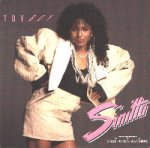
|
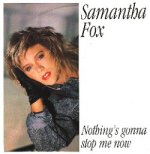
|
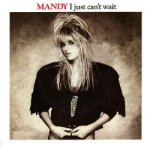
|
Apres Mel and Kim, le deluge... SAW discovered and groomed new singing stars like Sinitta, Brother Beyond and Rick Astley, or took already famous faces from the world of TV and tabloids like Kylie, Jason and Samantha Fox and crowbarred them into the SAW sound, often resorting to recording with something sinister called the Calrec Soundfield Microphone. This was a sleevenote stipulation insisted on by the unions, as the gadget basically turned 'non-singers' into tone-perfect vocalists, albeit with a processed sheen. This soon became as much part of the SAW sound as the out-of-control drum machine, melodic synths and frantic basslines. Kylie Minogue's debut single, 'I Should Be So Lucky' represented the zenith of the SAW story, dominating the charts and irritating and delighting the nation in equal measures with its brazenly banal approach to pop songwriting. By this time SAW were notorious enough to have their own sketches on 'Spitting Image', with them operating a huge conveyor-belt machine with two settings: high vocals for Kylie, low vocals for Rick and Jason.... and the rest of the music entirely interchangeable between artists. They did release a few singles as Stock Aitken Waterman themselves (the super-cool 'Roadblock' being one), but for all intents and purposes every record was really just SAW featuring Kylie, or Rick, or Jason... Their reputation made them highly-sought producers for anyone after a guaranteed hit. By 1989, Donna Summer, Cliff Richard and even Sigue Sigue Sputnik required their services. In 1990 their sound evolved along with Kylie's new 'sexy dance diva' phase with 'Better the Devil You Know' (officially SAW's 100th hit), 'Step Back In Time', 'What Do I Have To Do' and 'Shocked'. But the new sound, though suave, complex, and more timeless, lacked the SAW homogenous identity, and for the first time a SAW artist upstaged her producers. When Aitken left the partnership in 1991 and Stock followed suit a year later, their hegemony of the charts was over. Separately, they continued to make great records. Stock and Aitken, when not producing bill-paying mum-pleasing atrocities like Robson and Jerome, went back to their gay disco roots with 90s club classics like Newton's 'Sky High' and Tatjana's 'Santa Maria' (as featured to dramatic effect in the closing moments of Queer As Folk's first series) and Waterman most notably with Steps. In 2000, William Orbit is the only chart pop producer with a discernible, individual sound spanning his various hits with Madonna, All Saints et al, but he has a long way to go to match the heights of SAW-dom. About a hundred or so hits to go… © Dickon Edwards 2000 Further information on SAW :www.stockaitkenwaterman.com |
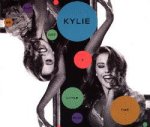
|
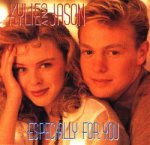
|
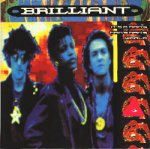
|